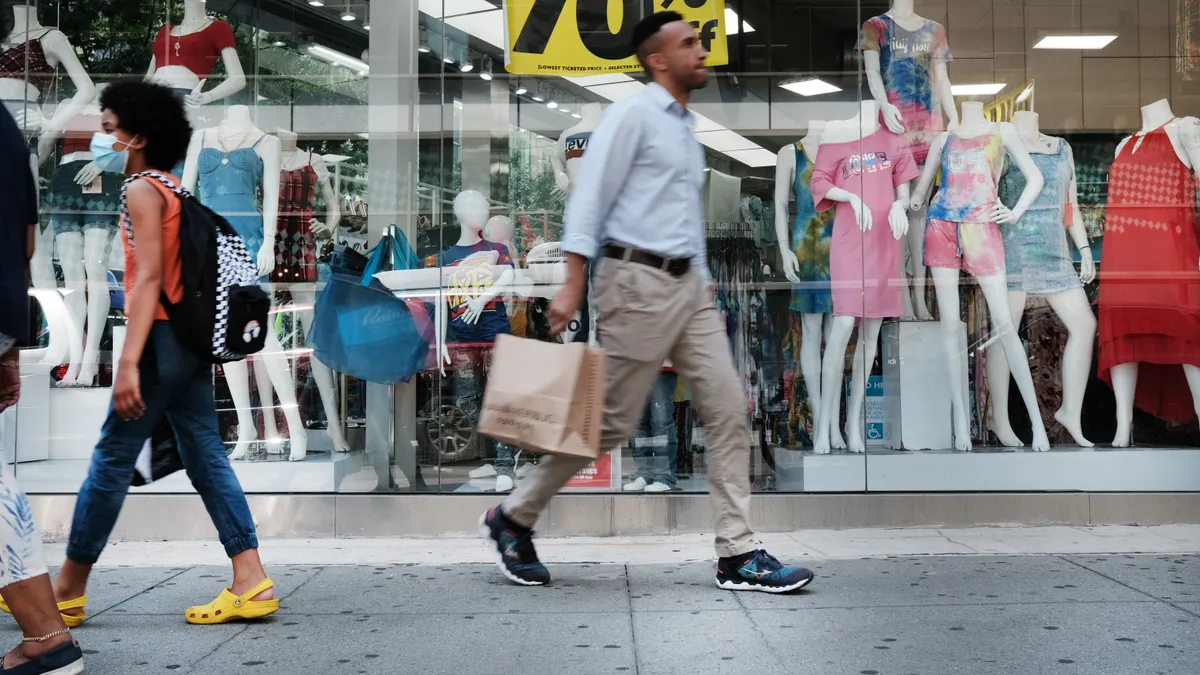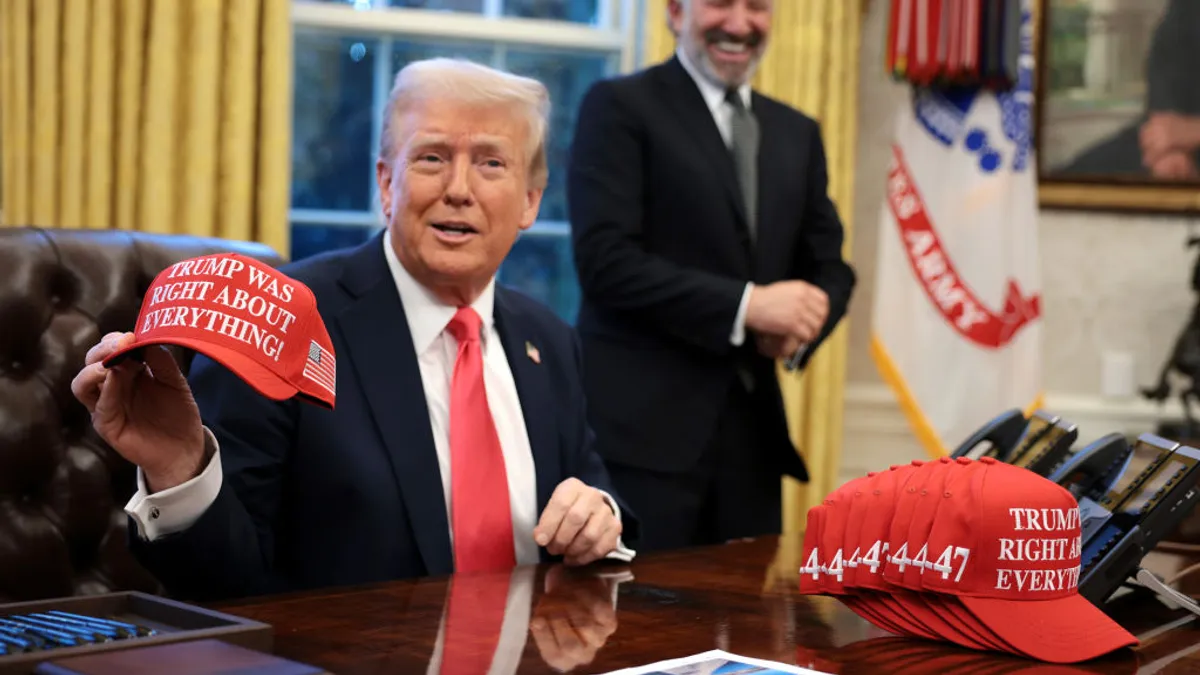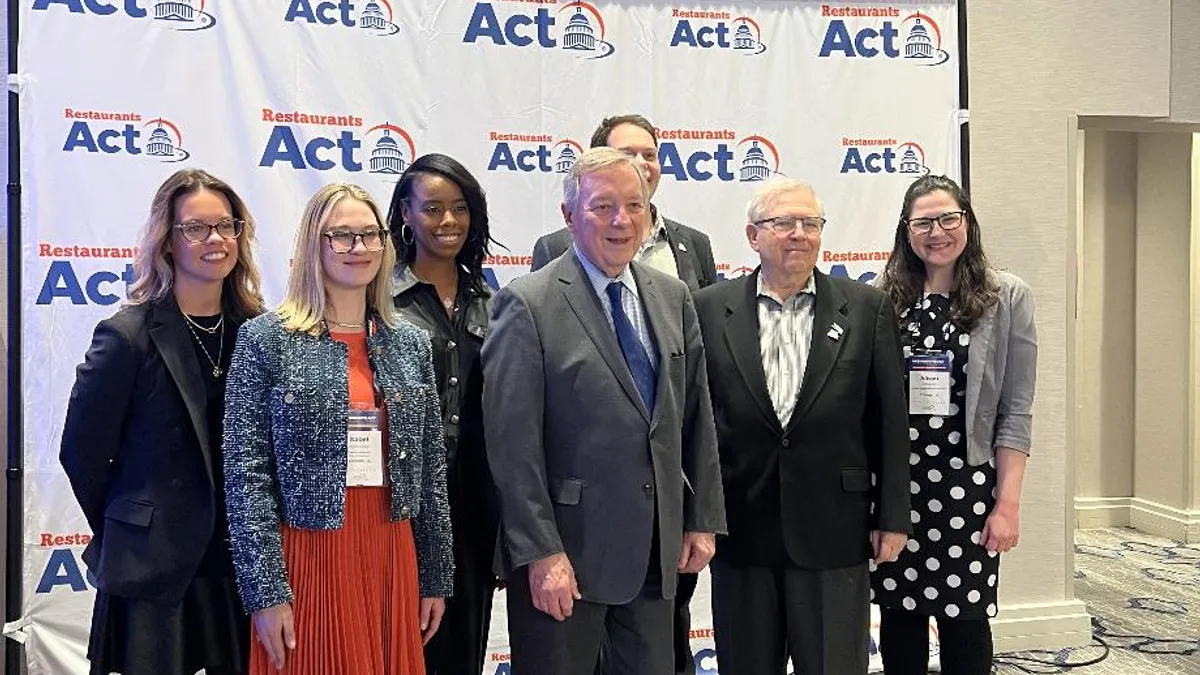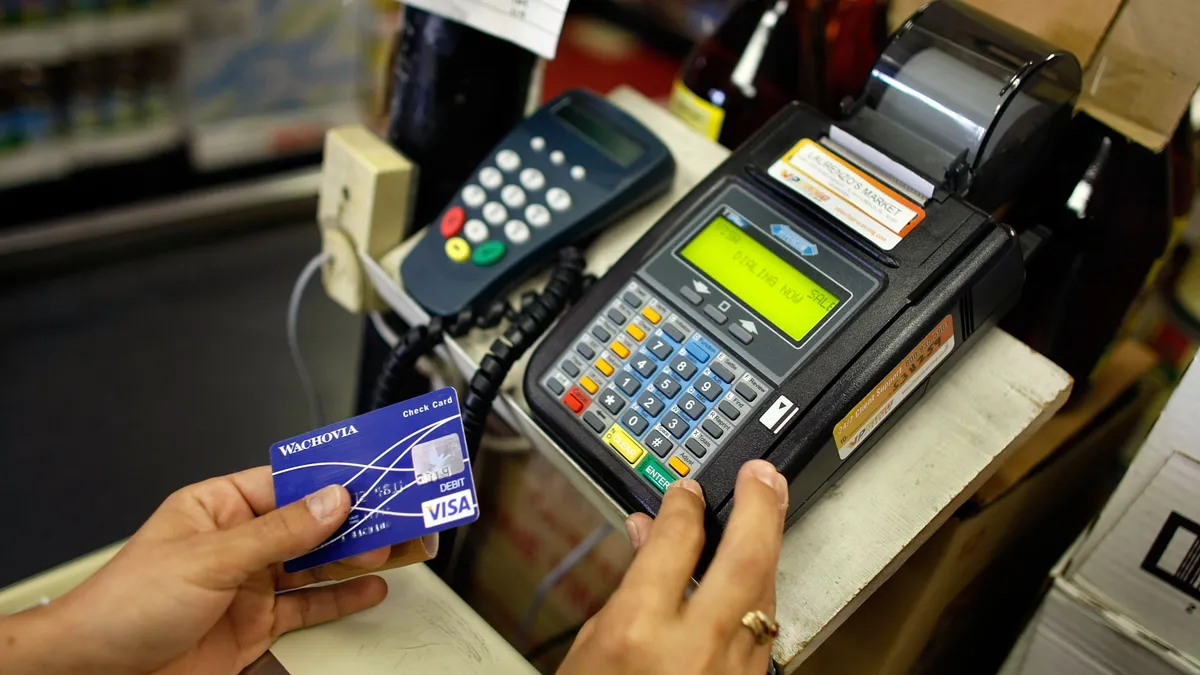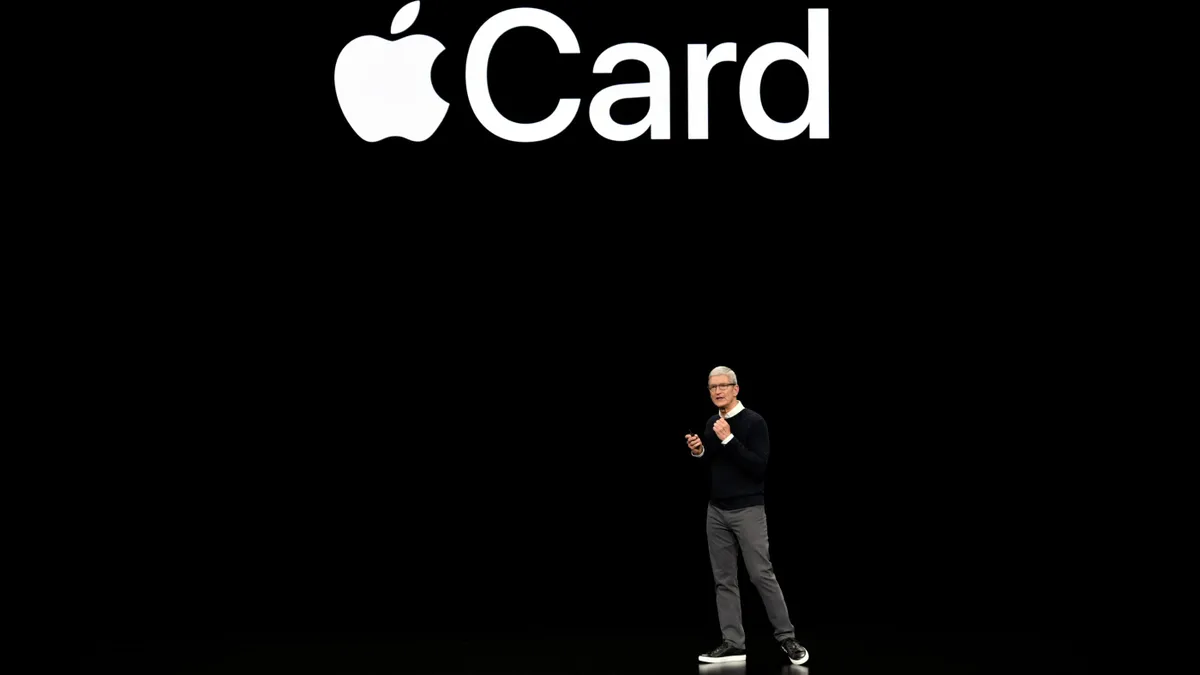Nearly 20 percent of U.K. credit cards were used last year to make buy now-pay later payments, a "warning flag" for regulators concerned about consumers taking on more debt than they can afford, said new research from three British economists.
The working paper, published online last month though not yet in an academic journal, examined the transactions of one million credit cards held by U.K. consumers and discovered 19.5% of active U.K. credit cards were used for charges covering buy now-pay later (BNPL) transactions last year.
"Some consumers may be entering a debt spiral transforming a 0% interest BNPL debt that amortizes over a few installments" into credit card debt with 20% interest rates that can amortize over a decade if they only make a minimum payment, the report stated.
The U.K.'s financial consumer watchdog, the Financial Conduct Authority, called for increased scrutiny of BNPL last year because of “significant potential for consumer harm." In the U.S., the Consumer Financial Protection Bureau is also taking a closer look at the industry.
Searching for BNPL data
It is the first report of its kind examining BNPL payments, according to Benedict Guttman-Kenney, one of the report's authors. Among the challenges he and his colleagues faced in producing the report was a lack of data, he said. The BNPL industry "hasn't really existed that long," said Guttman-Kenney, who is a doctoral student at the University of Chicago.
The trio's paper also estimated that 40% to 50% of all BNPL is charged to credit cards, but Guttman-Kenney said he and his co-authors are revising that estimate, based on feedback from companies in the industry.
BNPL providers often argue that their financing service is superior to credit cards because it allows consumers to pay for their purchases in interest-free installments. Critics of the installment financing, however, have argued that BNPL services encourage people to borrow more than they can afford—a notion that BNPL providers reject.
"Charging BNPL debt to credit cards is a warning flag for consumer financial protection regulators as it raises doubts on some consumers' ability to pay for BNPL," the report said. Guttman-Kenney co-authored the report with Chris Firth, a post-doctoral fellow at the universities of Warwick and Nottingham, and Professor John Gathergood of the University of Nottingham.
Though their research focuses on the U.K., the authors argue their findings are also applicable to the U.S.
Consumers used BNPL services to make an estimated $100 billion in retail purchases in 2021, equal to four times the level of such purchases in 2020, Forbes reported, citing consulting firm Cornerstone Advisors.
The BNPL spending could swell to $995 billion worldwide by 2026, according to a Juniper Research report last year.
''On the scale of crazy, this is less crazy than some other stuff I've seen in credit card behavior,'' Guttman-Kenney said in an interview. "But yeah, it doesn't seem like doing that is a great strategy for the consumer."
Trade group weighs in on BNPL
The extent of the practice, though, remains unclear. UK Finance, a trade group for banks and financial services firms, said one of its members that offers BNPL services estimates that less than 10% of its customers repay their loans with credit cards.
"(An) analysis from one of our larger credit card members shows that they saw an 8x increase in the overall usage of BNPL products by their customers over 3 years (between Jan 2019 and Oct 2021), where there is the potential for interest charges to be incurred," the trade group said in January. "Where interest is incurred in this way, the financing of the overall BNPL transaction will not be interest-free." UK Finance didn't identify either company.
As in the U.S, BNPL in the U.K. appeals to younger consumers, and is "especially prevalent" among people in their 20s, according to the new research paper.
"This is important as younger consumers may be less financially sophisticated as inexperienced users of financial products potentially needing protection," the economists wrote.
The authors also said it's more widely used by people in "the most deprived geographies" of England.
BNPL operators in the U.K., such as Stockholm-based Klarna and Sydney-based Afterpay, also operate in the U.S. The trend started in Australia about a decade ago, spread to Europe and has been catching on in the U.S. in more recent years. Last year, San Francisco-based Block, formerly Square, paid $29 billion to buy Afterpay.
Klarna announced in January that it would offer a physical Visa card that would allow consumers to make purchases in brick-and-mortar stores and online. Visa and Mastercard are also getting into the BNPL space with Visa Installments and Mastercard Installments.
U.S. concern about the growing industry
In testimony presented to the U.S. Congress in November 2021, Marisabel Torres, director of California policy at the Center for Responsible Lending, noted that some U.S. BNPL lenders accept credit cards for payments. Credit card companies, however, forbid the practice of paying off one card with another, Torres said.
The Consumer Financial Protection Bureau (CFPB) in December requested detailed information from five BNPL providers regarding their practices because of concerns over consumers taking on too much debt as the installment payment tool grows in popularity.
Affirm and Klarna have publicly acknowledged they handed in their paperwork to meet a March 1 deadline for the CFPB’s Dec. 16 order. The bureau also requested information from Block's Afterpay, PayPal and Zip, which haven’t disclosed whether they met the CFPB’s deadline.
"BNPL is subject to a host of U.S. regulations at the federal and state level," said Scott Talbott, a spokesman for the Electronic Transactions Association, which represents BNPL providers. "Additionally, once a consumer uses their credit or debit card to make a payment on a BNPL product, it is subject to all the corresponding regulations and consumer protections."
The latest research paper from the British research team is being submitted to a U.K. peer-reviewed journal called Economics Letters, according to Guttman-Kenney. Funding for the research came from the U.K. Economic and Social Research Council, he said.



